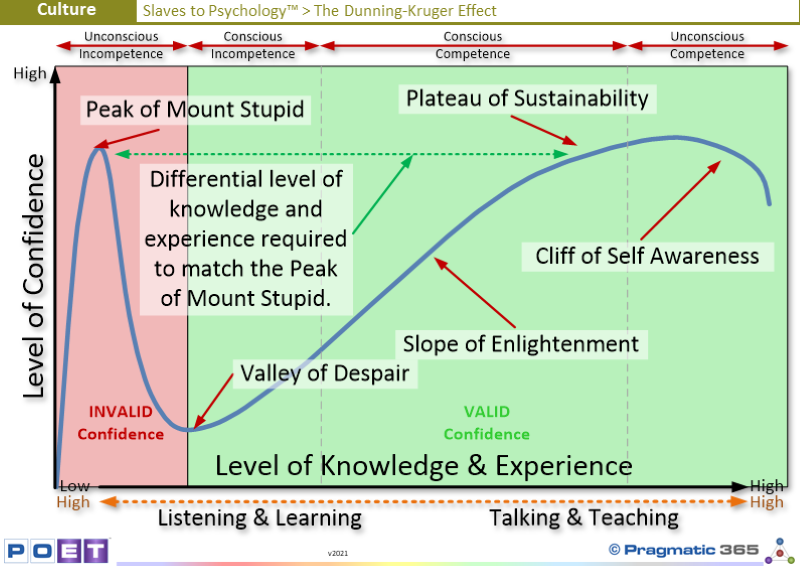
The Dunning-Kruger effect (defined by David Dunning &
Justin Kruger) is a cognitive bias, where people that have a low Competence
tend to have the illusion of superiority, as they do not possess the ability to
assess their own ability. This means they assess their own ability as higher
than it actually is. Essentially, the lack of people with low-cognitive
ability, to recognise they are of low-cognitive ability - because they do not
possess the cognitive ability, to assess their cognitive ability.
...to read more, please Login or Register